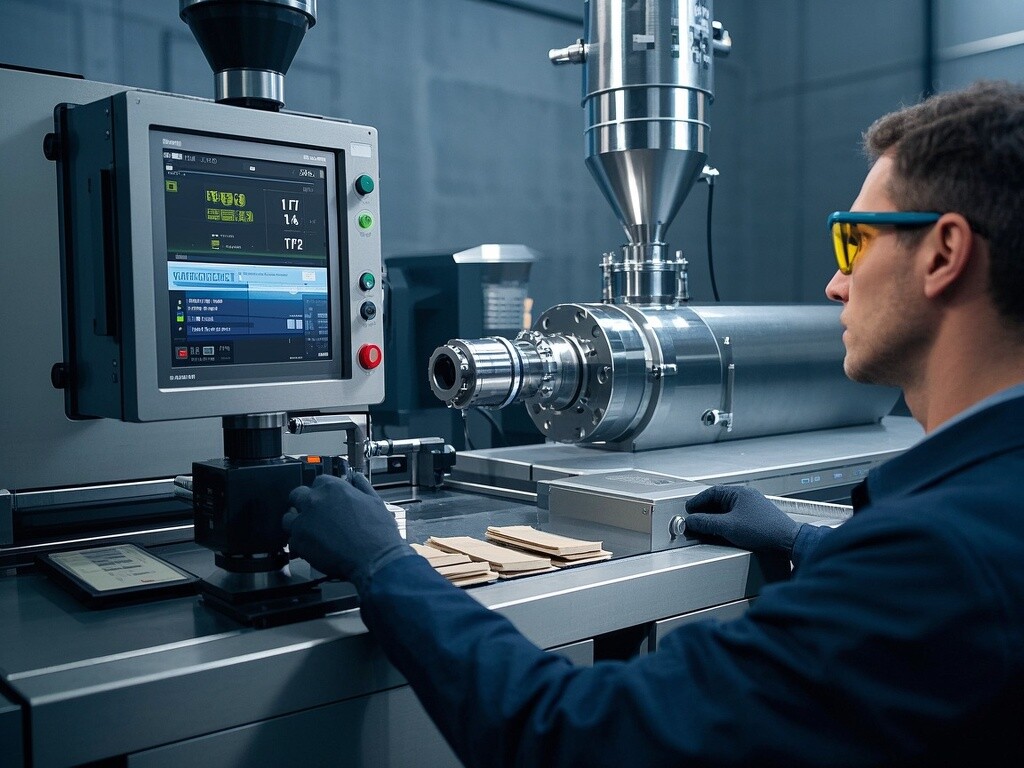News

Top 5 Must-Know Features of PVC Stone Plastic Flooring Machines
Discover the top 5 essential features of PVC stone plastic flooring machines that every industry professional should know. Whether you're researching PP hollow sheet equipment, box board machinery, or PVC/wood-plastic co-extrusion lines, these advanced flooring machines deliver precision and efficiency. Perfect for operators and specifiers in the plastic processing sector, these innovations optimize production for sheet extrusion and specialty flooring applications.
1. High-Precision Extrusion System for Uniform Thickness
Modern PVC stone plastic flooring machines incorporate advanced extrusion systems that maintain consistent material flow and thickness accuracy within ±0.1mm. The twin-screw extruder configuration, often found in premium PVC/wood-plastic co-extrusion lines, ensures thorough mixing of stone powder (up to 80% content) with PVC resin. This precision directly impacts product quality, reducing warping and dimensional instability common in conventional flooring production. Operators particularly appreciate the automated feedback system that adjusts parameters in real-time based on infrared thickness gauges, minimizing material waste during continuous operation of sheet extrusion lines.
2. Multi-Layer Co-Extrusion Capability
The industry-leading machines now feature 3-5 layer co-extrusion technology, allowing simultaneous production of wear layers, decorative layers, and core layers in a single pass. This innovation significantly enhances production efficiency compared to traditional PP hollow sheet equipment. The modular design permits quick changeovers between different flooring profiles – from SPC rigid cores to flexible LVT constructions. Temperature control zones (±1°C accuracy) maintain optimal viscosity for each material layer, crucial when processing the varied melt indexes of PVC compounds versus wood-plastic composites.
3. Intelligent Calendering & Embossing Synchronization
Unlike basic box board machinery, premium PVC flooring equipment integrates synchronized embossing systems that match surface textures precisely with printed patterns. The servo-controlled calendar rolls apply pressures up to 1500 tons while maintaining surface finish variations under 5 microns. This technology eliminates the "slippage" effect seen in conventional sheet extrusion lines, where decorative layers might misalign during high-speed production (typically 25-35m/min). The system's HMI interface allows operators to store hundreds of texture/pattern combinations, facilitating rapid product changeovers demanded by today's custom flooring market.
4. Energy-Efficient Thermal Management
Leading manufacturers now incorporate heat recovery systems that reduce energy consumption by 25-30% compared to older PVC stone plastic flooring machines. The closed-loop thermal oil circuits maintain stable temperatures across all processing zones, critical when working with temperature-sensitive wood-plastic composites. Some advanced models even utilize electromagnetic induction heating for specific components, achieving 95% thermal efficiency versus 60% in traditional resistance heating systems. These innovations directly address operational cost concerns for flooring producers facing rising energy prices worldwide.
5. Industry 4.0 Connectivity & Predictive Maintenance
The newest generation of PVC/wood-plastic co-extrusion lines features IoT-enabled sensors that monitor over 200 process parameters in real-time. Cloud-based analytics predict wear on critical components like screw elements and gear pumps, scheduling maintenance before failures occur – a game-changer for operations running 24/7 sheet extrusion production. Remote diagnostics allow technical support teams to troubleshoot issues without onsite visits, minimizing downtime that traditionally plagued PP hollow sheet equipment operations. These smart features have become essential for flooring manufacturers pursuing lean production methodologies.
Industry Applications & ROI Considerations
PVC stone plastic flooring machines serve diverse market segments from residential luxury vinyl tiles (LVT) to commercial stone polymer composite (SPC) flooring. When evaluating ROI, producers should consider not just the capital expenditure but the operational advantages over traditional box board machinery: higher line speeds (up to 40m/min vs. 15m/min), lower scrap rates (<2% vs. 5-8%), and reduced labor costs through automation. The ability to process recycled PVC content (up to 30% in core layers) further enhances sustainability credentials increasingly demanded by global buyers.
Frequently Asked Questions
- How does PVC stone plastic flooring equipment differ from standard sheet extrusion lines?
These specialized machines feature reinforced extruders for high-filler materials, precision calendaring systems for textured surfaces, and multi-layer capabilities absent in general-purpose PP hollow sheet equipment. - What maintenance intervals are typical for these machines?
With predictive maintenance systems, screw and barrel inspections occur every 3,000-5,000 operating hours, while calendar roll servicing is recommended every 8,000 hours. - Can the same equipment produce both SPC and WPC flooring?
Advanced models with modular designs can switch between stone-plastic composites and wood-plastic composites through quick-change screw/barrel configurations and temperature profile adjustments.
Why Choose Our PVC Flooring Production Solutions?
With 15 years of specialization in PVC/wood-plastic co-extrusion lines, we deliver turnkey systems combining German engineering precision with localized service support. Our machines consistently achieve 98% uptime rates in demanding 24/7 operations, backed by industry-leading 3-year warranties on critical components. Contact our engineering team today for a customized production analysis tailored to your specific flooring market requirements.
Navigation
- Why PP Box Sheet Production Lines Are Revolutionizing Packaging?
- How to Choose the Best PP Corrugated Sheet Equipment for Your Needs?
- Top 5 Must-Know Features of PVC Stone Plastic Flooring Machines
- The Ultimate Guide to PVC/WPC Foam Board Extrusion Lines
- Expert Tips for Maintaining Your PP Corrugated Sheet Equipment
- How PVC Stone Plastic Flooring Machines Can Boost Your Productivity
Send Us A Message
Send Your Inquiry
We welcome your cooperation and we will develop with you.
